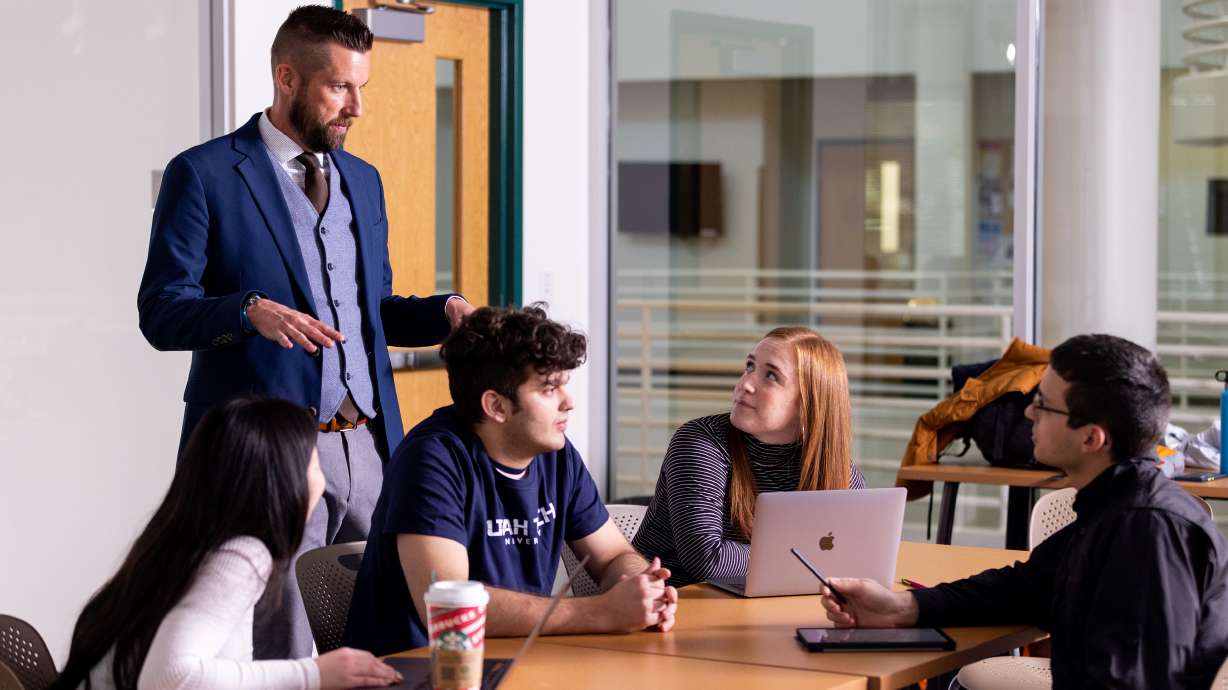Estimated read time: 3-4 minutes
This archived news story is available only for your personal, non-commercial use. Information in the story may be outdated or superseded by additional information. Reading or replaying the story in its archived form does not constitute a republication of the story.
ST GEORGE — After the Center for First-generation Student Success reviewed hundreds of higher education institutions, Utah Tech University is one of 76 that the center is including in the First Scholars Network for the 2023-24 school year.
The university was selected as a member of the network on June 2.
The network works with over 350 other higher education institutions across the country, connecting each university with resources, studies and stories of student success that can help the institutions with their first-generation students, according to Kyle Nixon, the center's director of network expansion and operations.
Nixon added that while the center had reviewed hundreds of applications, Utah Tech, in particular, stood out due to its dedication to first-generation students.
"There are institutions all across the country who may show an interest in doing this work, but may not necessarily have a desire to make a difference in the lives of their students by transforming their campuses," Nixon said. "But through Utah Tech's application, we definitely saw that and know that, one, there is a need to be able to transform their campus — but then, two, a desire to follow up on what that looks like."
Marisa Thayn, Utah Tech University's coordinator of first-generation student services, also noted that there could be several reasons why the university was chosen — its high percentage of first-generation students and extensive resources for them being a few.
In addition to clothing closets and free food pantries, Utah Tech's Resource Center also provides students with academic and career coaching, peer mentoring, financial aid, scholarships and assistance navigating the higher education system, according to Thayn.
And that's not all Utah Tech is doing to help first-generation students. In the upcoming academic year, the Utah Tech Trailblazers Club will go to Washington County high schools and meet with first-generation students as young as ninth graders to discuss their college options.
"I think that (the Center for First-generation Student Success) can see that our dedication to our first-gen is very strong; we've got momentum, and we're moving forward with our programming," Thayn said. "I think that having a large first-gen population also plays into that factor in being an open enrollment institution."
About 30% of the institution's attendees are first-generation college students, Thayn said.
While open enrollment may create more options for students who are academically or economically disadvantaged, Thayn also noted that first-generation students are attending college at increasing rates.
"Nationwide, (the Center for First-generation Student Success) estimates that about 32% of college students are first-generation. So it's kind of a trend nationwide for the students to find their way back to the universities," Thayn said.
To assist the Trailblazers' first-generation students, the First Scholars Network will provide Utah Tech faculty and staff with sufficient opportunity to continue to improve the campus through conferences, calls, reporting and studies with other first-generation-focused institutions, according to Nixon.
"In those spaces, you're able to get ideas of what other institutions are doing and really work to adapt some of those things for your specific institution," Nixon said.
Nixon added that the university would also go through a score-based reporting system on how effectively the faculty and staff assist their first-generation students, and will then provide the institution with ideas and resources to solve any challenges.
Once they've connected with other institutions and made effective changes to their campus, members of the First Scholars Network can then progress to the second phrase, "First-Gen Forward," making them eligible to become a First Scholars Institution. If Utah Tech advances to this phase, it can receive individualized data on how to improve in specific problems, Nixon said.
Ultimately, the university's growth in the program will be dedicated to helping its student population feel more comfortable and successful in the institution, Thayn noted.
"I see my first-generation students as some of the greatest students," Thayn said. "They're dedicated, they're hardworking. They're more motivated by change and ready to see that change."








